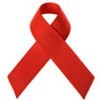The theme of Iris House’s 14th Annual Women as the Face of AIDS Summit, held on May 6 at Bethel Gospel Assembly in Harlem, New York, was “Our Thoughts. Our Voices. Our Time.” Among the more than 250 participants, presenters and speakers making their thoughts known and voices heard were many women living with HIV.
The summit kicked off with opening remarks from executive director Ingrid Floyd, followed by an update on HIV and women and girls by Theresa Mack, MD, MPH of St. Luke’s Medical Group. Participants then broke up into 16 workshops spanning such topics as storytelling, access to care, pre-exposure prophylaxis (PrEP) and peer programs.
“In It Together: Improving HIV Health Literacy for All,” one of the event’s first breakout sessions, aimed to improve participants’ capacity to deliver HIV services that meet the health literacy needs of diverse people living with or at risk for HIV. Another session, “Collective Storytelling for Great Impact,” taught participants how their own stories could be a part of collective action and change.
The second wave of morning breakout sessions featured “A Recipe Book with a Story—Sabor Latino,” which addressed how peer-inclusive programs can empower patients to take control of their care and improve adherence and engagement in care as well as strengthen relationships between patients and their providers.
At “Support and Hope: Helping Women Living with HIV Who are Isolated by Geography and Circumstances,” attendees learned about the importance of support groups, notably, those that address the needs of women with HIV in rural areas or who are home-bound in urban communities.
A lunch plenary examined the power of peers and mentorship. Iris House also honored Lorena Borjas, Kimberly Canady, Antionettea Etienne and Gina Brown, MSW, for their HIV advocacy.
Gina Brown from @SouthernAIDSCo and @iamlhscruggs are discussing the importance of the mentor/mentee relationship at the #WFASummit. “At some point a good mentee will overtake the mentor. And a good mentor will never be jealous of her mentee.” pic.twitter.com/dvrJmBiMr4
— Iris House (@irishouse) May 6, 2019
In addition to a networking reception, the summit concluded with a presentation led by Robert Fullilove, EdD, associate dean for community and minority affairs at Columbia University Mailman School of Public Health, that explored how 400 years of slavery and mass incarceration have contributed to rising HIV rates in the United States.
“The theme of the day was exemplified by the great diversity and high energy of our participants,” Floyd said in a statement. “Their voices, heard loud and clear through the day, were passionate and informed.”
Dr Robert Fullilove educates the audience on the roots of slavery which started 400 years ago in 1619. HIV/AIDS and 400 Years of Inequality #WFASummit #inequality pic.twitter.com/AqtxDMEINc
— Iris House (@irishouse) May 6, 2019

CUNY-BMCC students with keynote speaker Robert E. Fullilove, EdD, of Columbia University Mailman School of Public HealthCourtesy of Iris House/Donna Aceto Photography

Iris House staff at Bethel Gospel Assembly in Harlem, New YorkCourtesy of Iris House/Donna Aceto Photography








Comments
Comments